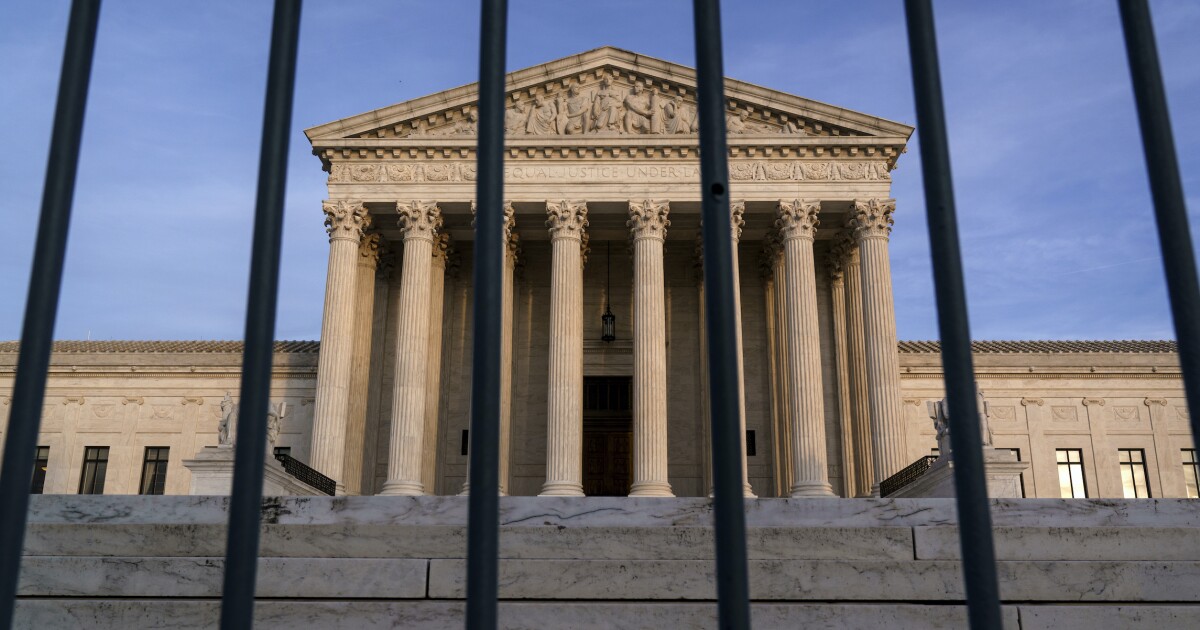

The House of Representatives passed a bill that looks to challenge a Supreme Court ruling critics argue has given too much authority to executive branch agencies.
The Separation of Powers Restoration Act of 2023 passed the chamber in a 220-211 vote on Thursday, which would allow federal courts to review agency action without deferring to the agencies themselves.
BIDEN BETS THAT THE BEST WAY TO BEAT TRUMP IS TO REMAIN SILENT ON THE INDICTMENT
Current precedent from the 1984 Supreme Court decision in Chevron USA v. Natural Resources Defense Council created a two-pronged test for determining if an action by an agency follows how Congress authorized it. The first part of the test is if it is clearly outlined in the authorizing legislation, while the second part of the test denotes that “if the statute is silent or ambiguous with respect to the specific issue, the question for the court is whether the agency’s answer is based on a permissible construction of the statute.”
All Republican House members voted for the bill, except Rep. Matt Gaetz (R-FL), while all Democratic members, except Rep. Henry Cuellar (D-TX), voted against the bill. Reps. Mark Green (R-TN) and Jahana Hayes (D-CT) did not vote.
“Government works best when it can be held accountable,” Rep. Scott Fitzgerald (R-WI), the lead sponsor of the legislation, said in a statement following the bill’s passage.
“Unfortunately, unelected bureaucrats in our agencies wield far more power than intended because of mandated deference, like Chevron, during judicial review. This legislation restores Congress’s authority as the branch that makes the laws and the judiciary as the branch to interpret and enforce them.”
CLICK HERE TO READ MORE FROM THE WASHINGTON EXAMINER
The White House said it would oppose the bill if it were to pass in the Senate, but that appears unlikely to happen with Democratic control in the upper chamber of Congress.
“This bill would undermine separation of powers, a fundamental element of our government, by attempting to jettison long-standing principles concerning judicial review of agency interpretation and implementation of laws and regulations,” the White House Office of Management and Budget said in a policy statement.





